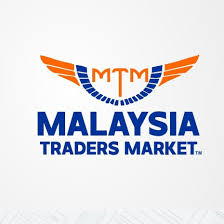Bilateral trade and investment development between Nigeria and Malaysia will take centre stage on Monday as the Malaysia Traders Market (MTM) officially launches its operations in Lagos State. The high-level event is expected to deepen economic ties between the two nations, especially in the area of non-oil export and E-commerce trade facilitation.
Themed “Bilateral Trade and Investment Development,” the MTM launch will showcase a strategic platform designed to promote Malaysian and Nigerian collaboration in business development, investment, product marketing, logistics, and digital warehousing systems.
The Malaysia Traders Market is an innovative business model that combines bilateral trade, E-commerce, and supply chain infrastructure to support Nigerian businesses, especially small and medium-sized enterprises (SMEs), in accessing Malaysian markets and vice versa.
The Malaysian High Commissioner to Nigeria, Ambassador Aiyub Omar, is expected to attend the launch alongside several dignitaries and stakeholders from the public and private sectors, all with a shared passion for economic growth and global trade opportunities.
Speaking at a press briefing in Abuja over the weekend, Prince Olawale Sulaiman Ayinla, the Founder and Chief Executive Officer of MTM, highlighted the core services and impact of the organisation on Nigeria’s drive to diversify its economy.
According to Ayinla, MTM is positioned as a one-stop hub for business and trade consultancy, product and service marketing, logistics, distribution, customs clearance, and import-export management. He described the platform as a timely intervention for boosting Nigeria’s non-oil revenue and strengthening business-to-business and government-to-government collaboration between Nigeria and Malaysia.
He explained that the MTM ecosystem includes digital warehousing for Malaysian goods in Nigeria and vice versa, enabling faster product availability, reduced shipping delays, and transparent transactions between buyers and sellers in both countries.
“This project is not just a trading platform; it is a bilateral solution to some of the challenges businesses face in accessing foreign markets. MTM provides Nigerian manufacturers and exporters a doorway into Malaysia’s thriving consumer market while giving Malaysian companies direct reach into Nigeria,” Ayinla said.
Industry experts say the Malaysia Traders Market comes at a time when Nigeria is looking to reduce its overdependence on crude oil exports by expanding into sectors such as agro-processing, technology, manufacturing, and retail. Malaysia, with its developed export economy, is considered a strategic partner in this process.
The MTM is also seen as a tool for supporting the objectives of the African Continental Free Trade Area (AfCFTA), as it provides Nigerian exporters with the tools, logistics support, and market access necessary to scale their businesses regionally and internationally.
While bilateral trade between Nigeria and Malaysia has existed for decades — especially in palm oil, rubber, and machinery — stakeholders believe MTM could help unlock new trade opportunities in consumer goods, textiles, electronics, ICT, and agricultural produce.
As part of its long-term vision, the Malaysia Traders Market also plans to establish regional trade offices across major Nigerian cities, providing business support services, warehousing infrastructure, and technology integration for cross-border transactions.
The formal launch in Lagos is expected to draw participation from the Nigerian Export Promotion Council (NEPC), Nigeria Investment Promotion Commission (NIPC), Lagos Chamber of Commerce and Industry (LCCI), and various private sector leaders.
Stakeholders see the MTM as a practical response to the growing demand for structured trade frameworks between Africa and Asia. It also strengthens Nigeria’s position as a commercial hub in West Africa by connecting local businesses to the global marketplace through reliable logistics and trade compliance solutions.
With trade policies shifting and digital transformation becoming essential for commerce, initiatives like MTM are expected to play a pivotal role in facilitating non-oil export growth, foreign direct investment (FDI) inflows, and supply chain efficiency.
